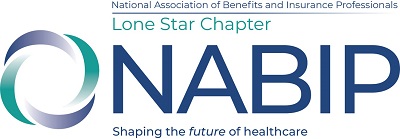Let’s say you injure yourself in the backyard. You trip over an extension cord, fall off a 3-foot ledge and land face-first onto concrete pavers. You chip a front tooth, dislocate a pinkie, bash your forehead, splatter your nose, and suffer a mild concussion.
Someone carts you to an emergency room where you’re treated by an ER doctor, who orders X-rays and cleans you up, but then decides you need to spend the night at the hospital for observation because she doesn’t like the look of the big bump on your head.
The next day, you’re released, return home and vow to get rid of all the extension cords!
Fortunately, you have state-regulated, fully-insured health insurance so your pain and loss are merely pain and loss. But two or three years ago, if this had happened to you, it might have been financially catastrophic.
For example, if you had damaged an eye socket, torn a tendon, or ruptured fibrous muscles that allow you to wiggle your fingers, you might have been forced to see several specialists. And if those specialists weren’t in your insurance company’s network, then they were not contractually required to limit their rates in any way. They could have sent you a “surprise medical bill”, charged whatever they wanted, whether it seemed fair or reasonable at all.
So, now imagine what it might have been like if you had had a heart attack or a stroke. Unable to consent to treatment, you might have been taken by air-ambulance to a critical care center and treated by multiple specialists — a cardiologist, a radiologist, an anesthesiologist. If one or more of them were not “in-network,” the surprise medical bills might have not only ruined you financially, they could have sent you back into cardiac arrest.
Nearly half of Americans fear unexpected medical bills, according to a 2020 Harris poll. More than four out of 10 say they couldn’t pay a $1,000 surprise medical bill, so support for some type of relief cuts across all political lines in all corners of the nation.
Fortunately, Texans covered by state-regulated health insurance can rest comfortably, knowing that if they face a medical emergency, they won’t be sucker-punched with these surprise bills.
In 2019, the Texas Legislature passed Senate Bill 1264 by Sen. Kelly Hancock (R-North Richland Hills) and Rep. Tom Oliverson (R-Cypress), which took effect in January 2020. It prohibits health care providers — doctors, nurses, clinics, hospitals, and labs — from demanding that consumers pay through the nose when out-of-network services are provided, either with or without the patient’s consent. The law now bans them from sending surprise medical bills directly to patients.
If a dispute arises between a medical provider and an insurance carrier, SB 1264 requires them to enter dispute resolution – first an informal phone call; then mediation; or finally, arbitration if the dispute can’t be solved.
Here’s the best part: the patient is no longer part of the equation. In the case of billing disputes, the provider and carrier must work out their differences, and not involve patients. This Thanksgiving season, we can be thankful that state lawmakers have gotten this policy right for consumers.
Inspired by Texas, similar federal legislation takes effect January 1, 2022, and should provide relief for people covered by a self-funded plan or ERISA (Employee Retirement Income Security Act), which sets minimum standards for health plans obtained directly by employers for their employees.
Texas’ 2019 law change was strongly supported by the Texas Association of Health Underwriters (TAHU) which represents more than 1,400 health insurance agents and brokers across Texas and serves as the chief advocate for consumers at the Texas Capitol. Independent agents play a crucial role in helping individuals and businesses shop for and find the best health insurance plan for their needs.
According to the Texas Department of Insurance (TDI), it has received in the past 18 months 98,586 eligible requests to resolve medical billing disputes totaling $450 million.
Of those that went to arbitration, 49% were settled in the first 30-days. 35% were settled by an arbitrator. 15% were withdrawn or deemed ineligible.
Of those that went to mediation, 82% were settled in the first 30-days. 1% was settled by a mediator. 17% were withdrawn or deemed ineligible.
Meanwhile, according to the TDI, consumer complaints about surprise billings have plummeted by 96% — from 1031 in 2019 to just 40 in 2020.
So, what are the big takeaways?
- Americans universally express deep fears of being saddled with unexpected medical expenses.
- Under significant political pressure to respond, Texas lawmakers adopted ground-breaking reforms that are being replicated nationwide.
- Medical bill disputes are still happening, and requests for mediation and arbitration continue to climb. The dispute resolution process will undoubtably require additional data, definition and interpretation.
- This issue is very complicated, and it’s been made even more complicated by COVID-19.
- While SB 1264 faces procedural, institutional, practical, and political challenges ahead, Texas lawmakers should be commended for passing a well-written and carefully researched piece of legislation.
Through TAHU, health insurance agents and brokers remain committed to supporting efforts to find a solution to this most challenging problem, and we give thanks for the progress already made. Finally, watch out for those extension cords, raised ledges and concrete pavers!
Angela Theesfeld of San Antonio, chairs the Legislative Council of the Texas Association of Health Underwriters (TAHU): more than 1,400 members in Texas – agents, brokers and carrier representatives – who help clients and employers of all sizes find the best health insurance for their needs. angela@davidsoncampinsurance.com or (210) 384-5349
Source: TAHU.org

